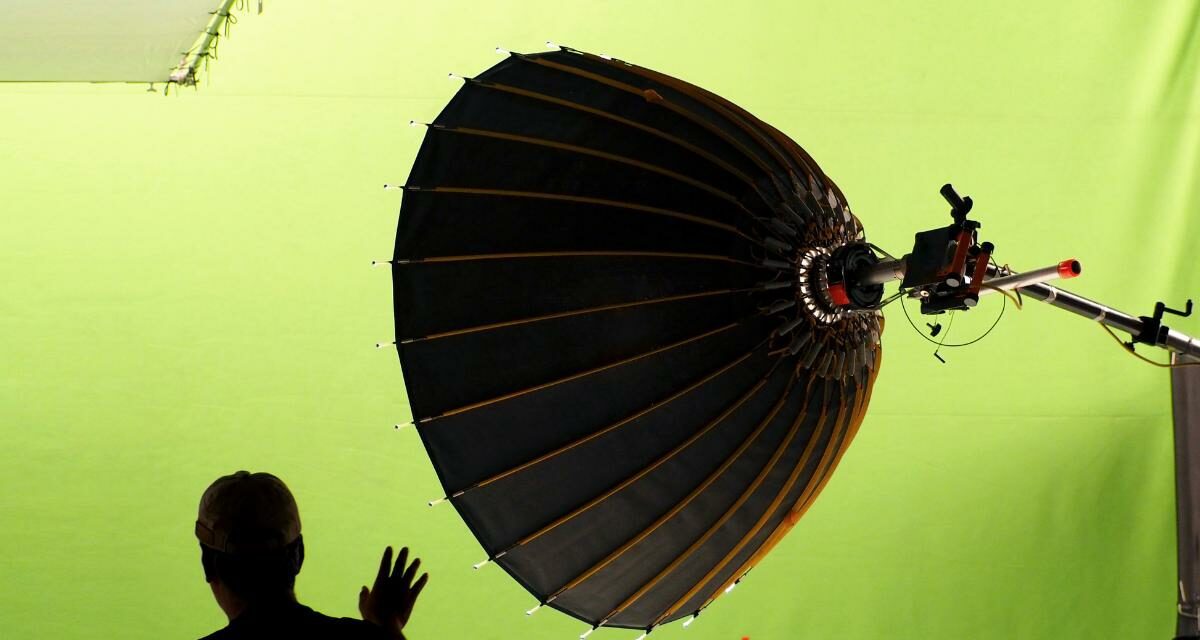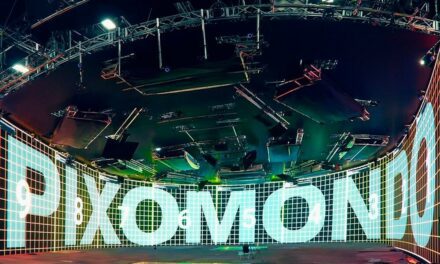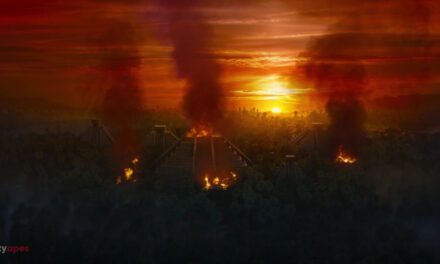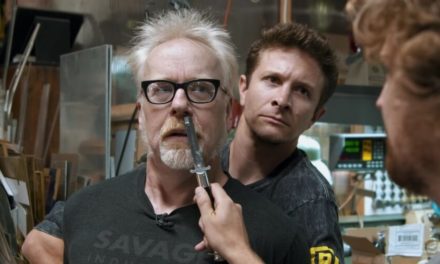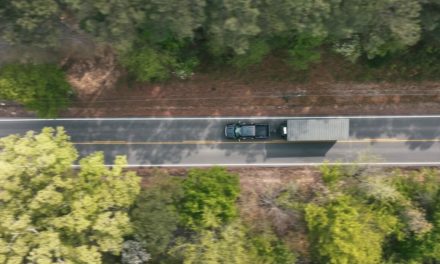When the Rebel Alliance carved a glacier base on the ice world of Hoth, the effects team from The Empire Strikes Back gave no thought to how this might impact the native Wampa population. When Mount Doom poured gas and ash across Mordor, you never once saw a Lord of the Rings safety control person stumble out into the Dead Marshes to gauge air quality. Don’t even get me started on Jurassic Park – there’s little evidence that proper – if any – tests were done to determine the tons of methane emissions pouring from that Stegasaurus shit.
The movie industry has come a long way and is still working its way forward in environmental sustainability in film production. This extends to VFX: every facet of production leaves an imprint, and industry stakeholders are right now working to bring greater education and visibility to sustainable film production.
Here’s a look at where things are at in the industry-wide push toward green production methods, and where things are going.
The “Rolling Green” program presented with panels and discussions on sustainability at CAFÉ 2023
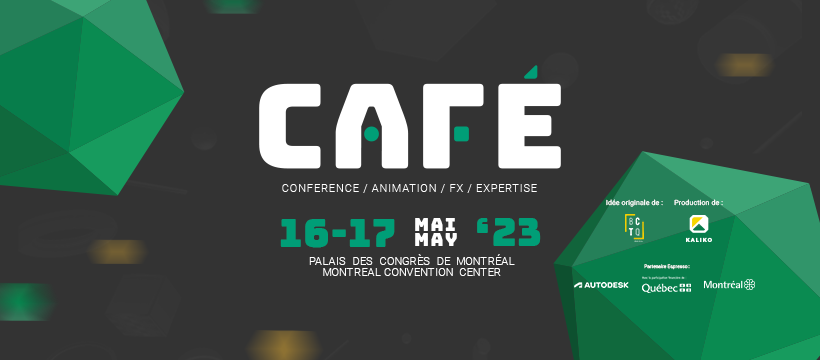
The annual CAFÉ event centered in Quebec takes place the third week of May and hosts opportunities for VFX artists and supervisors to network and experience a week of seminars and technological presentations. It’s like a SIGGRAPH or SXSW, but all about the direction of VFX and animation.
From the CAFÉ website:
CAFÉ (Conference, Animation, FX, and Expertise) is a gathering event for professionals in the field of visual effects and animation where they can meet their community, exchange on the latest innovations and share their knowledge throughout a convivial experience.
The event will propel you to make new discoveries through technical conferences, business meetings, exclusive soirées, and more.
CAFÉ released its 2023 program in late April and pointed its focus to the significance of discussion about sustainability in audiovisual production. From 80 Level:
A significant proportion of CAFÉ 2023 will be devoted to the environmental aspects. Details concerning the Rolling Green program will be presented, and the need for the industry to make the shift to green production will be demonstrated. A QFTC (Quebec Film and Television Council) initiative focused on environmentally responsible audiovisual production in Quebec, Rolling Green promotes and fosters the adoption of responsible practices at all stages of production.
The Rolling Green program proclaims its mission as fostering the adoption of eco-friendly initiatives in Quebec. It offers educational best practices and resources, activities, and tools to help create eco-friendly film production environments. The Rolling Green program has four stated initiatives, and one of them contains a goal that is directed toward Quebec but really pertains to the entire industry:
- Reduce the consumption of natural resources
- Manage residual materials in a responsible manner
- Raise awareness and educate the various stakeholders
- Reduce energy consumption and GHG production
Supporting the Rolling Green presentation was a research and development event guided by SYNTHÉSE and CDRIN. SYNTHÉSE is an organization centered on the growth of Quebec’s artists in the niche area of computer graphics. It was founded by the Department of Education and works to promote cooperation and education among Quebec’s CG artists. CDRIN is a governmental branch that focuses on the socioeconomic development of Quebec, and its innovation helps to advance methods and practices across industries.
The merging of Quebec’s entities devoted to economical eco-conscious growth with CAFÉ’s VFX element shows that this is not a small-scale effort by a few environmentally conscious VFX artists. This is an industry- and country-wide effort to bring awareness to innovative sustainable practices for the future.
The VECTAR Project leads by example with all-cardboard timber waste sets
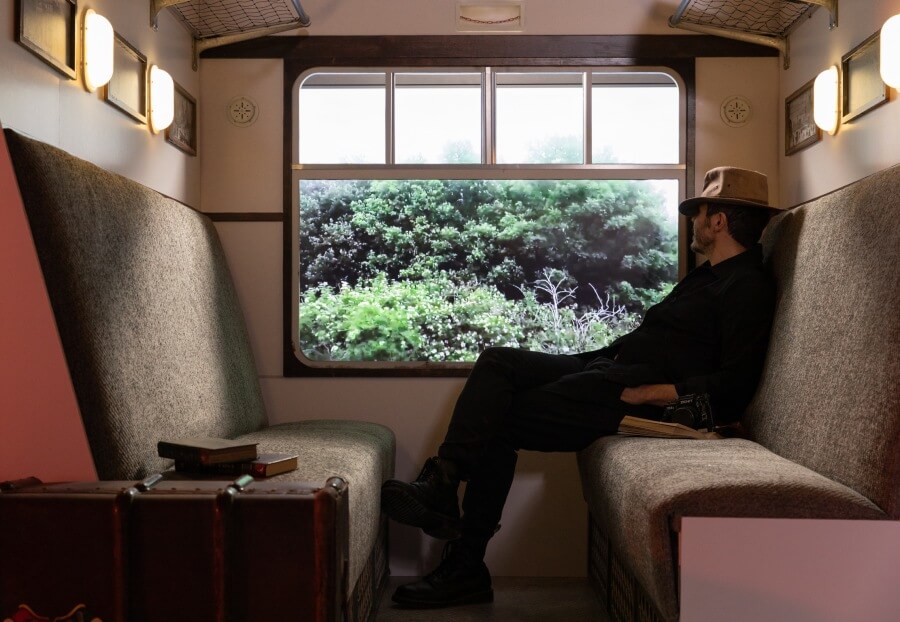
One of the Vectar’s paper-based sustainable sets. Photo: vectarproject.co.uk
This is both a savvy rebranding move by The VECTAR Project and a sincere push to increase the presence of eco-friendly practices in film.
The VECTAR Project – formerly known as Z Film Studios – is a film production studio in South Manchester in the UK. What was once just another midlevel production studio is now a complete rebrand to be one of the most progressive “carbon neutral film production” studios in the film industry. It wasn’t just a surface-level PR overhaul – they did a complete green upgrade of their 25-year-old facilities.
In a “history” section on The VECTAR Project’s webpage, they describe implementing solar lighting and updating the sound stage to build out energy-efficient infrastructure. According to The VECTAR Project, what this has translated to is status as:
“The 1st film studio and post-production facility in the UK dedicated to completely carbon neutral film production by the end of 2020”
The VECTAR Project’s actions have been partially influenced by the tenacious work of the UK sustainability certifying organization, albert (yes, it’s a lowercase “a”).
Albert is kind of like a nonprofit OSHA for environmental sustainability in the UK film industry. Led by members of BAFTA, it’s dedicated to serving as a resource oasis for environmental progression in the film industry, while working to foster greater knowledge with sustainable production trainings and studio climate pledges. They’ve created an “albert toolkit” that includes a carbon calculator for studios to measure their imprint and create a “Carbon Action Plan”. By completing a Carbon Action Plan, a studio can receive “albert Certification” as a sustainable production entity.
Albert made headlines in 2020 when it published an environmental sustainability study called “A Screen New Deal: a route map to sustainable film production”. According to the albert study, the average tentpole production with a budget of over $70 million will generate 2,840 tons of carbon, and it would take 3,709 acres of forest a year to gulp down that giant carbon shot. Albert attributed 51% of the carbon emissions to transport, and the remainder to a variety of electricity, gas, and diesel use. They also asserted the industry’s prevalence of wasteful production materials and proposed utilizing virgin materials for “resource-efficient set construction”.
BTS of a recent shoot down @LDNFilmStudio. Set had to be rigged so that it could fly apart on cue. This was a perfect job for VECTAR Board as its 90% lighter than conventional materials and 100% recyclable! pic.twitter.com/P8wCvDCaYD
— The Vectar Project (@VectarProject) October 18, 2022
The relationship between The VECTAR Project and albert goes something like this: albert has provided credible data and The VECTAR Project translated this problem into taking action in the form of a sustainable paper-set design.
So, now it’s happening.
The VECTAR Project builds cardboard sets made exclusively with timber production leftovers like sawdust and unused branches. The design was created by The VECTAR Project Managing Director Tom Henderson and set design artist Chris Gilmour. CTGN Europe quoted Gilmour on the carbon footprint of the design:
We wanted to look at every single aspect, from lighting, to power, to catering. We then managed to get the right materials, develop vector board and provide a complete solution in sustainability that gives us up to 93 percent smaller carbon footprint.
According to Vectar, these paper-based sets have comparable strength to chipboard but are lighter, recyclable, and remain paintable and printable. Efficient setup – easy cleanup. The sets have now been used in productions for BBC, Channel 4, and other productions across the UK.
12 studios received “Studio Sustainability Standard” badges from albert in May 2023
Chomp a lemon, chug milk, and say “studio sustainability standard” as fast as you can without puking.
This is like a gold star from one of the teachers who oversee the “greenness” of the film industry. Albert’s Studio Sustainability Standard goes like this:
Studios operate by a volunteer standard of assessing and pinpointing facets of their physical space where they could improve their environmental imprint. The criteria by which they assess include:
- Climate
- Circularity (the renewable potential for a material versus wasting it)
- Nature
- People
- Management
- Data
Albert then gives the studio a grade and a report that can help them make upgrades and adjustments to their work environment. The goal is to track progress on an annual basis. In May 2023, five of the 12 first-year participating studios received the highest grade of “very good” in their 2022 sustainability efforts. Project Lead Steve Smith about the Studio Sustainability Standard:
Congratulations to all the studios who have participated in the first year of the Studio Sustainability Standard. You are part of an elite group of 12 studios demonstrating your commitment to tackling the climate emergency by getting to Net Zero as quickly as possible. It’s been inspiring to see so many initiatives already under way to help make the screen sector a zero carbon, zero waste industry.
Moving toward sustainability one step at a time.
For every visible action taken to improve the climate, there’s a detractor somewhere that talks cost or efficacy of green policies. But the numbers have shown an industry swing: studios are steadily moving towards green film production. BAFTA’s 2021 annual review showed that during 2020, the average hour of tv contributed 4.4tC02E per hour (nerd talk for carbon). In 2021, this number increased to 5.7t with the post-Covid opening up of travel and industry – a 30% increase. But compared to previous pre-Covid years? The number was a staggering 9.2tC02e in 2019.
Like the pace of a sun-dappled, dew-laden jungle fern, green growth is happening. In the film industry, it’s growing at the studio level from the inside out.

